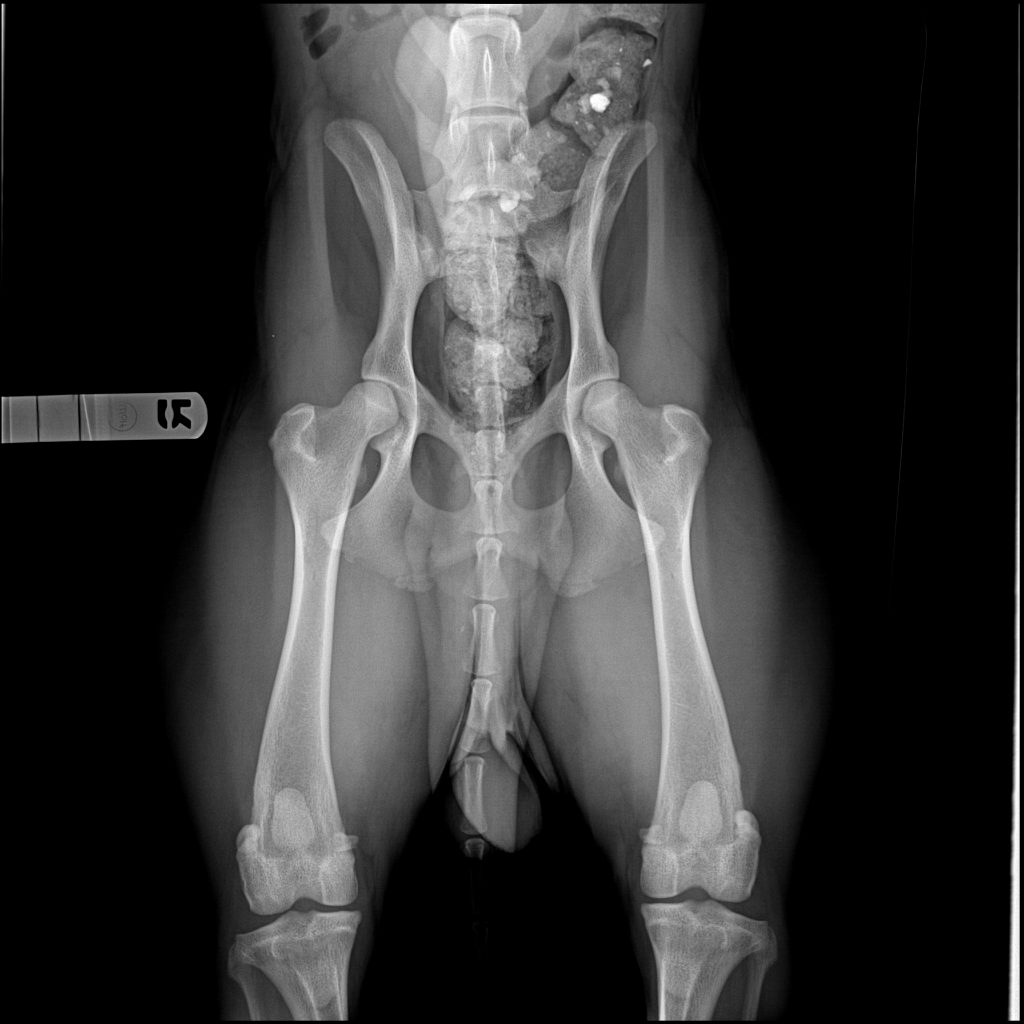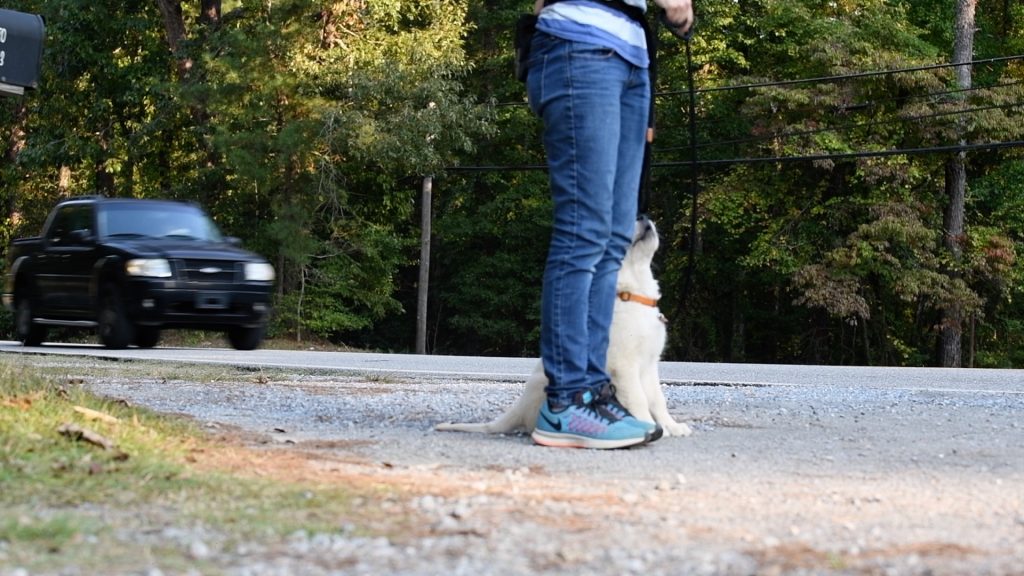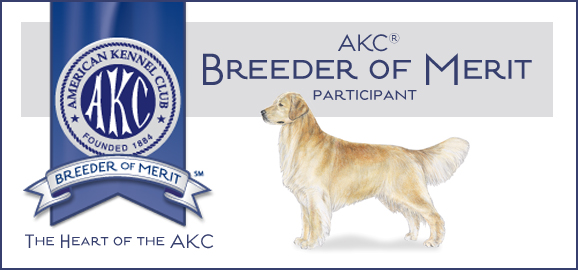Night Time House Training
Most of our 10 1/2 to 11 week old puppies are able to sleep without going potty at night for about 6 hours straight. None of them should have to get up more than once in an 8-hour night. Here is how we recommend you handle those first few nights with your puppy in your home.
Spoil your puppy the first night and take him out if he cries. Carry him to the potty place. Don’t talk to him. Be matter-of-fact. Set him down. Wait for no more than two minutes for him to find a place and pee. If he pees, pick him up and carry him back to the crate. If he doesn’t pee, pick him up and carry him back anyway. Don’t let the puppy think that you’ll take him outside at night to play.
Don’t Make This Mistake!
If your puppy learns that he can go outside and enjoy a long sniff or play time, he’ll be inclined to continue waking you up at night to play. If his time outside is limited to two minutes and he doesn’t have to potty, he’ll be far less likely to cry to get out the next time he wakes and wants to play. Puppies (and dogs) wake often in the night and they need to learn to settle themselves and go back to sleep.
If your puppy doesn’t pee when you’ve taken him out, keep in mind that the next time he wakes, he may well have to pee. Therefore, you’ll need to take him out again if he cries again. You may be thinking that you should have given him more time the first time you took him out. Giving him more time may well result in a pee. However, if you want to develop long-term good habits, this practice of only giving the puppy 2 minutes outside will pay off. Most likely there will only be one night of multiple trips outside (if there are any).
Day Time House Training
House training consists of building both a puppy’s ability to hold his potty as well as his desire to hold it. How long a puppy can hold his potty is always longer than how long the puppy will hold it. This is exemplified by the fact that when confined to small spaces, puppies will hold their potty a lot longer than they will hold it when given free rein of an entire house.
Most puppies raised by us will hold it on average for about an hour when given free rein of the house. However, that doesn’t mean that they can’t hold it longer. Dozens of our puppies have traveled across country on plane trips that were over 5 hours without pottying in their carrier. So why does the puppy that is loose in the house go more often than the puppy in the carrier?
Small spaces are strong motivators for a puppy to hold his puppy IF he has been raised by a breeder who nurtures the puppy’s natural instinct to eat and play in one place and to pee and poop in another. Therefore, once one of our puppies has reached the point in time whereby he is no longer inclined to hold his pee when the least bit of urge comes on him, he needs to be confined to a small space.
The Purpose of a Crate
Being confined to a small space such as a crate will accomplish two purposes.
First of all, it will prevent accidents from happening in your home so that you can promote good habits. Habit is key in all aspects of dog training.
Secondly, crating a puppy when he has a slight desire to relive himself will provide an opportunity to build bladder control. Increased bladder control will enable the puppy to hold it longer in the future.
The Daytime Potty Outing
Most puppies enjoy going outside with you. They enjoy sniffing and exploring with you by their side. Most will want to prolong these outings for as long as they can. If they learn that as soon as they potty, outside exploring is over, most puppies will also figure out that they can prolong their time outside by not doing their business.
Therefore, it’s important that you don’t let your puppy associate pottying with the end of the fun. Wait about 5 minutes after your puppy does his business before taking him inside. Giving him these extra 5 minutes will ultimately shorten his stay outside for the long-term.
Many books recommend rewarding a puppy with food treats for pottying. Though we think this might be a good idea in a very few isolated cases, we think this practice is seldom beneficial. We’ve seen several dogs learn to squat without fully emptying their bladder before running to get their treat. One of our dogs would squat repeatedly without peeing at all just for the food.
Even verbal praise needs to be doled out with care. If your praise is too exciting to the puppy, he won’t finish the job and will only half empty his bladder.
Ascertain YOUR Puppy’s Safe-time
Before setting up your puppy’s schedule for the day, you need to ascertain the minimum amount of time that you can trust your puppy in your home at any given time. This time should be gradually growing as your puppy grows and as he develops his ability and desire to hold it.
When you pick up your puppy, we’ll give you input as to where your particular puppy is on this. For most puppies, that minimum time is about an hour. We have a few that will hold it for 1 ½ to 2 hours. Unfortunately, we also have a few that will only hold it 30-45 minutes without being confined to a small space.
An Example of a Good Daytime Routine
Here is a suggested daily routine that you can adapt to your own puppy.
At the start of the day, take your puppy outside to potty. Bring him back inside to eat his breakfast. Twenty to thirty minutes later, take him out to potty again. First thing in the morning, all puppies have a back-up of pee from holding it overnight. Therefore, the first two potty outings will always be closer together in time than outings for the remainder of the day.
After this second pee outing, set a timer for the amount of time you’ve decided is your puppy’s period of time that he can be trusted loose in the house. Keep in mind that although your puppy might be safe as far as peeing in the house, he probably won’t be trustworthy with regard to chewing things you don’t want chewed.
After your puppy’s safe-time is over, take him out again. If he pees, set a timer for his safe-time again.
When Your Puppy Doesn’t Pee
If your puppy doesn’t pee, he must be either crated or tethered to you or carefully watched and interacted with. Don’t let your puppy roam around the house sniffing.
Our puppies do not pee if they are being interacted with, even if it is far beyond their safe-time. Therefore, starting at 8 weeks, we no longer take them out to pee before we bring them in for training. Just like when in a crate, puppies are motivated to hold it when kept busy interacting with you. It’s those free times when puppies might be bored and given too much freedom and are looking for something to do that accidents happen.
After crate time, take your puppy out and start the process over. When he pees, set a timer for free time in the house. When your puppy’s safe-time is over, crate him, tether him to you, or interact with him until he goes again. Repeat this routine throughout the day.
If your puppy goes to sleep, you must have a solid eye on him for when he wakes up. Puppies usually need to potty when they first wake from a nap. Therefore, I would put him in his crate for naps.
Key Principles of House Training
As you follow the schedule and routine that you’ve set for your puppy, keep these principles in mind.
- Creating good habits is key when training anything, especially in house training.
- If your puppy makes a mistake, clean it with a good odor eliminator or with a mixture of 1/2 distilled vinegar and 1/2 water.
- If your puppy makes a mistake, don’t punish the puppy. Punishing a puppy for peeing in the house will not teach him to stop peeing in the house. Instead, it will teach the puppy not to pee in front of you. A puppy who is afraid to pee in front of you won’t pee in front of you even outside. He’ll be inclined to wait and pee behind a couch or chair when you aren’t looking!
- It is better to take your puppy out too often than not often enough. If you’re not sure, take him out.
- If your puppy should pee in the crate, you have left your puppy in the crate far too long. Make sure you don’t let it happen again or your puppy could loose his desire for a clean “den”.
- If you got your puppy from a breeder who did not nurture the puppy’s instinct to keep a clean den, you must gradually re-build that instinct. (That is a subject for a later post). Your Summer Brook puppy will have maintained a strong instinct to hold his potty while in the crate.
- Take your puppy out the same door every time.
- Take your puppy out if he is doing a lot of floor sniffing.



